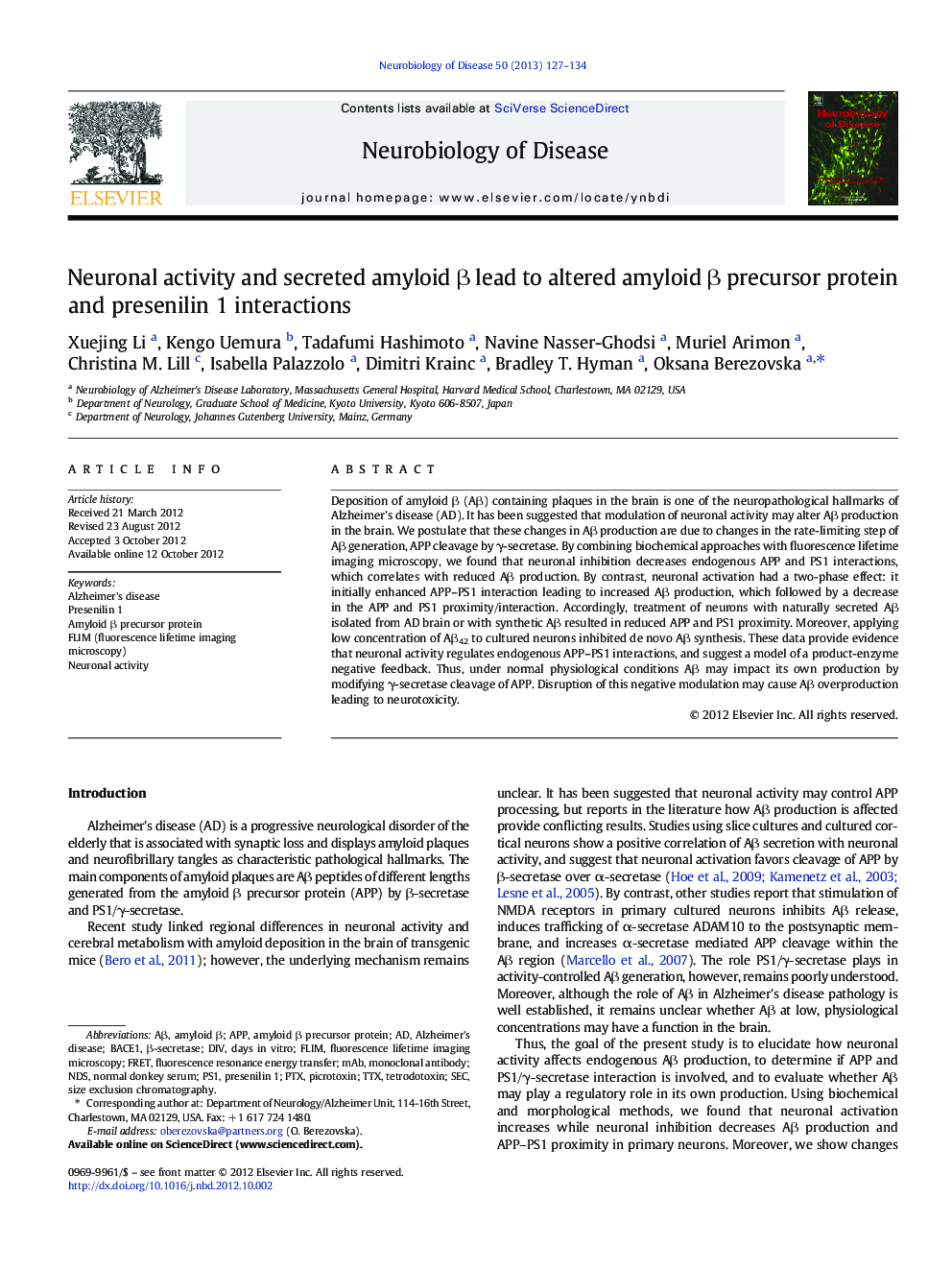| Article ID | Journal | Published Year | Pages | File Type |
|---|---|---|---|---|
| 3069466 | Neurobiology of Disease | 2013 | 8 Pages |
Deposition of amyloid β (Aβ) containing plaques in the brain is one of the neuropathological hallmarks of Alzheimer's disease (AD). It has been suggested that modulation of neuronal activity may alter Aβ production in the brain. We postulate that these changes in Aβ production are due to changes in the rate-limiting step of Aβ generation, APP cleavage by γ-secretase. By combining biochemical approaches with fluorescence lifetime imaging microscopy, we found that neuronal inhibition decreases endogenous APP and PS1 interactions, which correlates with reduced Aβ production. By contrast, neuronal activation had a two-phase effect: it initially enhanced APP–PS1 interaction leading to increased Aβ production, which followed by a decrease in the APP and PS1 proximity/interaction. Accordingly, treatment of neurons with naturally secreted Aβ isolated from AD brain or with synthetic Aβ resulted in reduced APP and PS1 proximity. Moreover, applying low concentration of Aβ42 to cultured neurons inhibited de novo Aβ synthesis. These data provide evidence that neuronal activity regulates endogenous APP–PS1 interactions, and suggest a model of a product-enzyme negative feedback. Thus, under normal physiological conditions Aβ may impact its own production by modifying γ-secretase cleavage of APP. Disruption of this negative modulation may cause Aβ overproduction leading to neurotoxicity.
► Neuronal inhibition decreased endogenous APP and PS1 interactions in vitro. ► Neuronal activation displayed a two-phase impact on the APP–PS1 interaction. ► Low concentration of exogenous Aβ inhibited de novo Aβ synthesis in cultured neurons. ► These data suggest a model of a product-enzyme negative feedback.
